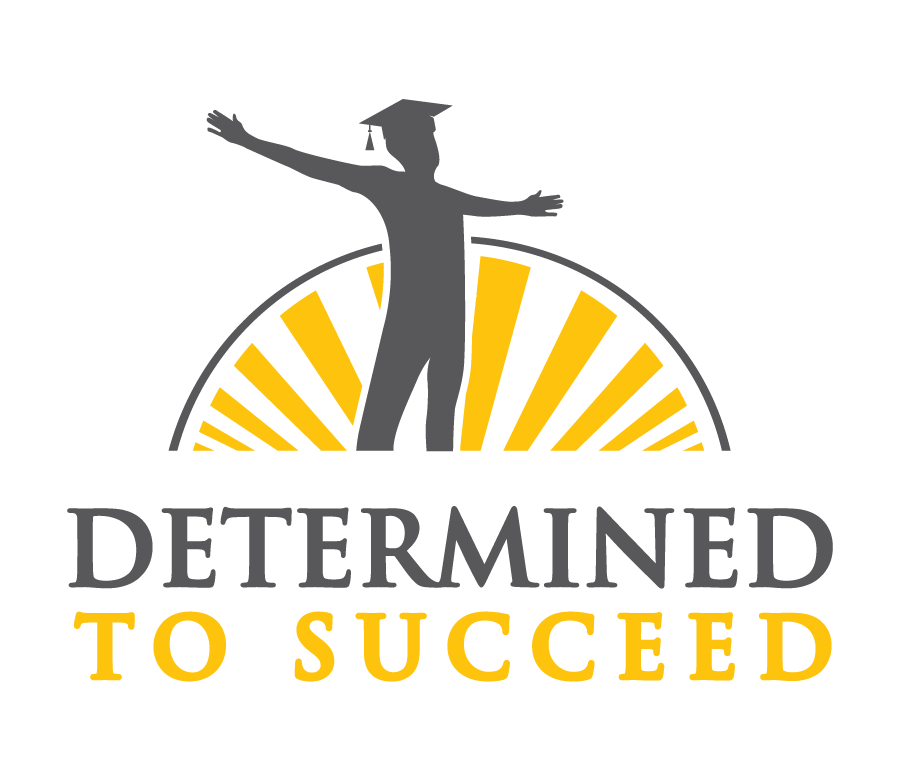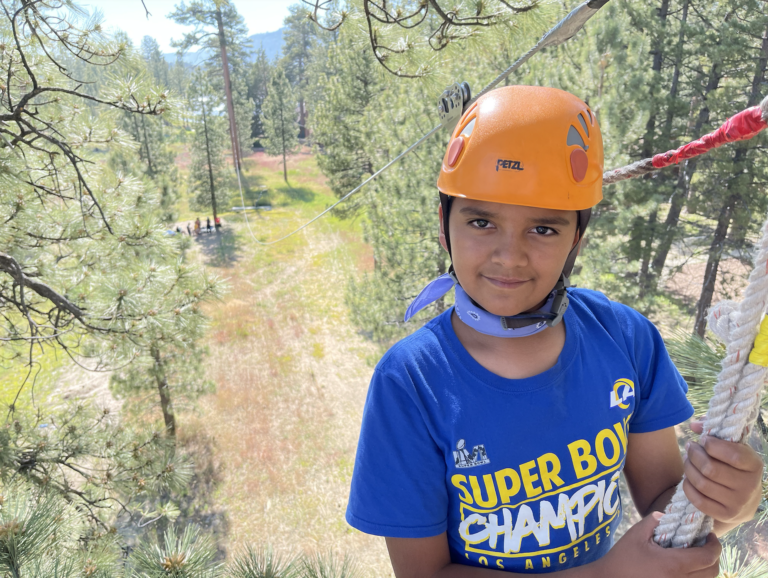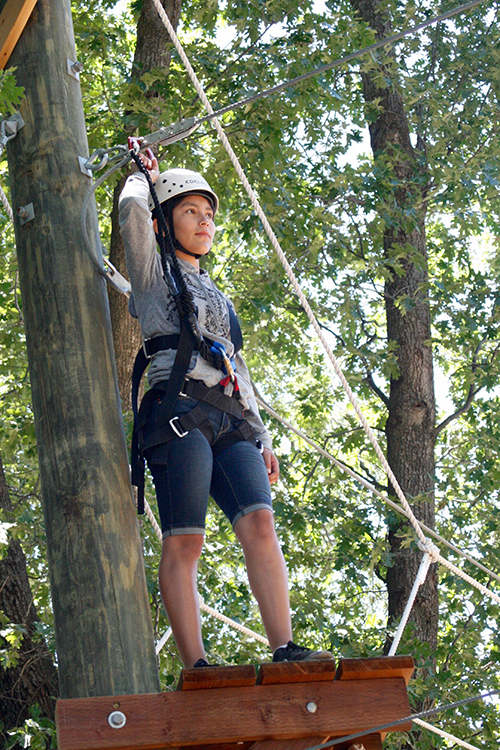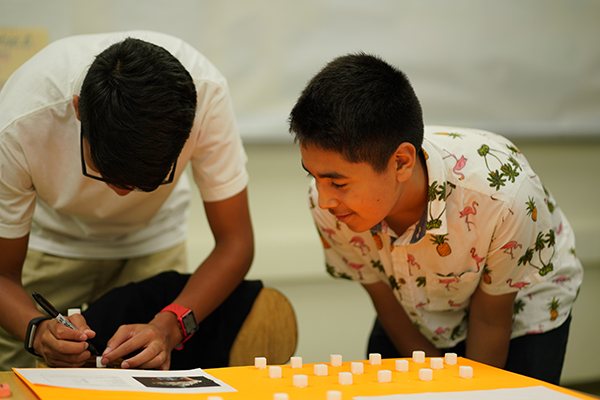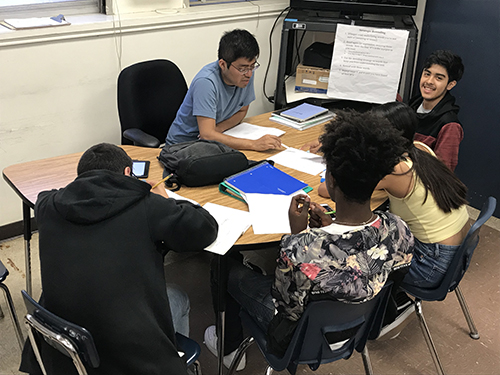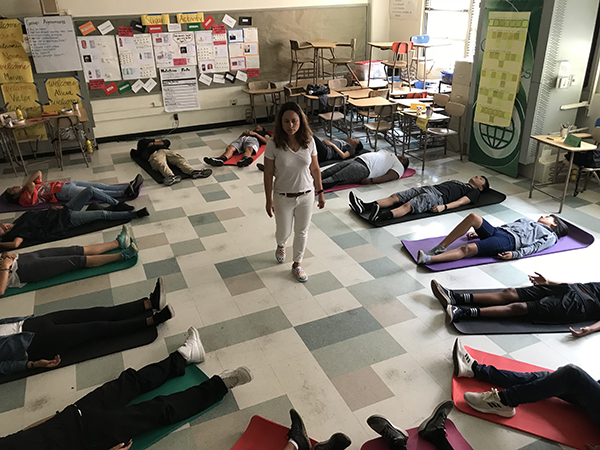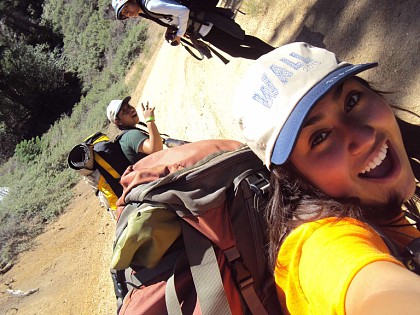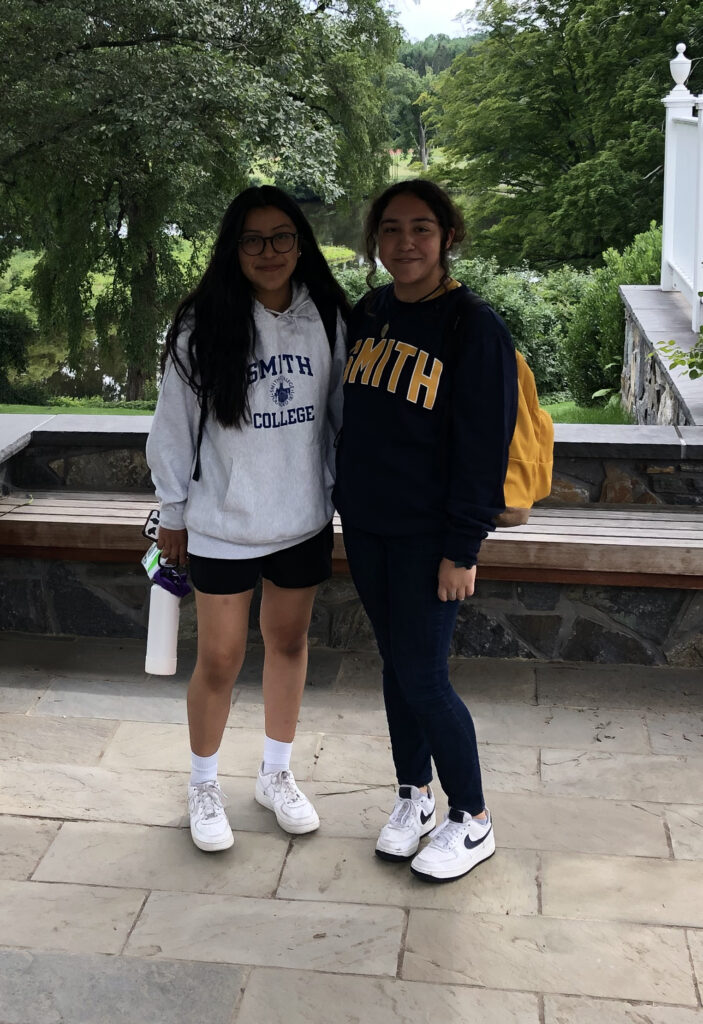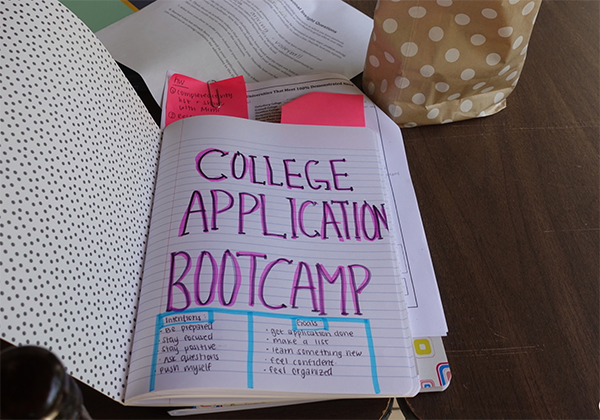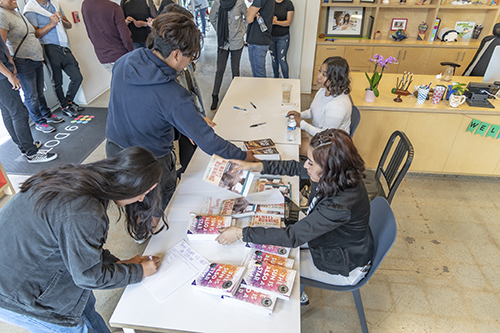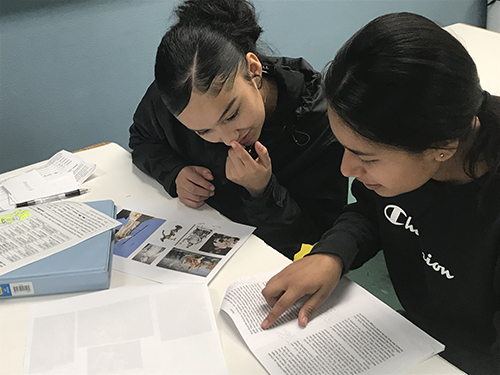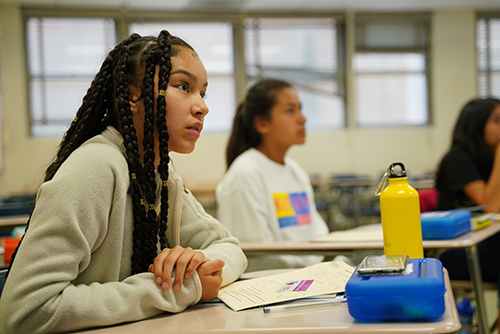Summer
Robust summer programming is vital to the high-touch model that defines DTS. Students entering 9th grade through freshman year of college participate in four weeks of distinct curriculum which furthers our mission by increasing feelings of competency and strengthening student to staff and peer to peer relationships. In addition to enjoying fun activities and unique experiences, the programming reinforces our college-going culture.
Each high school level program is designed to combat summer slide (the term used to describe how students, primarily low-income, regress in their learning after being idle over the summer and subsequently begin the school year at a deficit) and to address components of college readiness. Lessons are delivered through our innovative and impactful “whole child” approach which supports the development of executive functioning skills and the maintenance of physical and mental health.
Schedule by Grade Level
Before 9th Grade
Before 10th Grade
Before 11th Grade
Before College
DTS Outdoors Camp
Bridge to College
College’s Bridge Program
Employment
Additional Opportunities
Book Clubs
SAT/ACT Preparation Course
AP Course Boosts
External Programs
DTS Outdoors
All students and staff spend four days, three nights at a nature retreat located outside of Los Angeles. Our college students serve as counselors, taking on a leadership role while building authentic relationships with the younger students. Activities include a ropes course, challenging hikes, outdoor games, and nightly campfires. All are designed to help students disconnect from the city, connect with themselves and nature, bond as a group, and push themselves out of their comfort zones. For many of our high school students, the retreat is their first time away from home and serves as a safe step toward college readiness.
Bridge to High School
Over the course of three weeks, rising 9th graders prepare for high school. Programming includes academic remediation/advancement in math and writing, executive functioning skill facilitation, an introduction to the DTS college-going culture, and a health and wellness curriculum focused on fitness, meditation, and nutrition. Summer Bridge yields a dramatic increase in students’ feelings of readiness for high school- socially, academically, and in terms of their motivation to achieve.
Math Boosts
To promote math literacy and competency and to prepare students for fall semester math courses, all DTS high school students participate in week-long math boost classes taught by our STEM Specialist. Six courses are offered: Algebra I, Geometry, Algebra II, Pre-Calculus, AP Calculus AB, and AP Calculus BC. Any student wanting or needing extra support has access to additional tutoring.
Wellness Intensive
Over the course of two weeks, rising 10th graders learn how their personal health and wellness serve as the foundation for a happy and meaningful life. Through the lens of self-care, we concentrate on exercise, nutrition, sleep, communication, the mind-body connection, and sex education. Students have open and sometimes uncomfortable conversations about topics such as relationships, substance abuse, sexuality, gender identity, and body image. Additionally, stress-relieving practices, such as thought management, are woven into the daily lessons.
Challenge Ready
As rising 11th graders move closer to the college admissions process, more is expected of them inside and outside of the classroom. In order to ensure they are emotionally and academically ready for the next step, rising 11th graders participate in a distinct combination of activities. We partner with Lasting Adventures, a nonprofit organization focused on education and environmental stewardship, to lead our students on a backpacking trip through Yosemite National Park. They experience the stress-relieving benefits of being in nature while forging deeper connections with each other as they work toward a shared goal. After the trip, they return to the classroom to begin researching colleges, learn more about the financial aid process, and practice test-taking strategies.
Pre-College Residential Programs
Rising 12th graders are required to apply to pre-college residential programs as part of their summer curriculum. These programs give students the opportunity to experience life as a college student. They live in dorms, eat in the dining hall, take classes taught by professors, and explore all the campus has to offer. Afterwards, college feels less foreign and students can fully visualize their future. Some of the programs our students have participated in include:
- Minority Introduction to Engineering & Science (MITES) at MIT
- Summer Engineering Seminar (SES) at Santa Clara University
- Summer Pre-College Programs at Smith College
- Collegiate Leadership Summit at Franklin & Marshall College
- Engineering Possibilities in College (EPIC) at Cal Poly SLO
College Application Bootcamp
During this two-week program, rising 12th graders finalize their college lists and begin all facets of the application process. After mapping out a task completion schedule, they get to work! They draft personal statements, ask for letters of recommendation, begin the financial aid process, apply for college fly-out programs, practice interview skills, schedule admissions interviews, and more. At the conclusion of the program, students will have crafted their personal statements and have completed data entry and activity lists for the UC and Common Applications.
Bridge to College
This two-week program is the culmination of our Transition to College programming that began in the winter with a series of workshops attended by parents and students. Bridge to College successfully combats summer melt (the term used to describe high school graduates who are accepted to college but do not matriculate). Rising college freshmen spend two weeks preparing to make the transition from high school graduate to college student. We cover a wide range of topics, including new time management skills for a college schedule, syllabus mapping, stress management techniques, dorm life, and roommate issues, personal safety, self-care, maintaining a support system, and racism. The primary teachers are our older college students who speak from their experience and serve as both role models and guides.
Additional Opportunities:
Book Clubs
Book Clubs harness literature’s power to act as mirrors and windows, both reflecting student’s lived experiences and providing insight into unfamiliar worlds. They promote literacy, encourage students to explore authors, titles, and themes they may not find otherwise, provide students the opportunity to connect through conversation and give book lovers a place to feel safe, valued, and knowledgeable. The Book Club program, previously run by staff, is now run entirely by DTS college students. They survey students in choosing the summer’s books, market the program, and lead discussions.
SAT/ACT Preparation Course
Rising 11th graders may opt to participate in a week-long intensive SAT or ACT course created by College Access Plan and taught by our STEM Specialist. The week is bookended by two full-length practice tests and includes 8 Saturday review sessions the following spring. Students meet individually with our College Access and Success Counselor to establish test schedules and review practice plans. The innovative course curriculum “addresses both understanding of content and question-design as well as students’ anxiety about these tests by using metacognitive tools that consider both what students know and what they feel.”
AP Course Boosts
Our AP Boost classes were created for students who were feeling trepidation about the rigor of AP classes. Inspired by the academic confidence they felt upon completing their DTS Algebra Boost the summer before ninth grade, they requested DTS create boost curricula for their impending AP courses.
Interested students may enroll in any of the following boosts: AP Chemistry, AP Physics, AP Biology, AP English Language, AP English Literature, AP Spanish Language, AP Spanish Literature, AP French Language, AP U.S. History, AP World History and AP Government.
External Programs
In addition to our internal programming, DTS encourages students to apply to programs that further their own interests. DTS helps with applications and covers tuition gaps. Some student favorites include:
- The Young Center’s California Youth Think Tank
- Kode with Klossy
- Teens Exploring Technology
- Coro’s Youth Fellows Program
